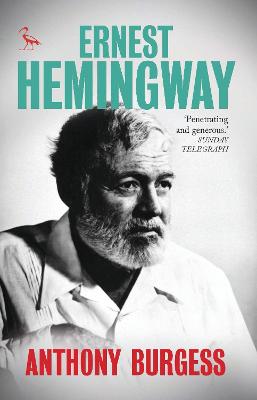Literary Lives
1 total work
'He was six feet tall, huge-chested, handsome, ebullient, a warrior, a hunter, a fisherman, a drinker.'
Ernest Hemingway was arguably the most influential writer of the 20th century, the Nobel Prize-winning author of such classics as For Whom the Bell Tolls, The Sun Also Rises and A Farewell to Arms, and a man who lived his life with as much passion and intensity as many of the characters in his novels.
At the age of 18, he was awarded a medal for bravery in World War I; he honed his literary craft in 1920s Paris; his macho image grew with his love of big-game hunting, deep-sea fishing and bull-fighting, and was cemented during the Spanish Civil War.
But, by the 1940s, the darkness of his alcoholism and violent rages began to weigh heavily. Hemingway had become the patriarch of American literature but he was plagued by unrelenting demons and an insidious disenchantment with life.
In this unflinching portrait, Anthony Burgess explores Hemingway's fatal contradictions, revealing a man who was as much a creation as his books yet who, even at his worst, reminds us that to engage literature one has to first engage life.
Ernest Hemingway was arguably the most influential writer of the 20th century, the Nobel Prize-winning author of such classics as For Whom the Bell Tolls, The Sun Also Rises and A Farewell to Arms, and a man who lived his life with as much passion and intensity as many of the characters in his novels.
At the age of 18, he was awarded a medal for bravery in World War I; he honed his literary craft in 1920s Paris; his macho image grew with his love of big-game hunting, deep-sea fishing and bull-fighting, and was cemented during the Spanish Civil War.
But, by the 1940s, the darkness of his alcoholism and violent rages began to weigh heavily. Hemingway had become the patriarch of American literature but he was plagued by unrelenting demons and an insidious disenchantment with life.
In this unflinching portrait, Anthony Burgess explores Hemingway's fatal contradictions, revealing a man who was as much a creation as his books yet who, even at his worst, reminds us that to engage literature one has to first engage life.
